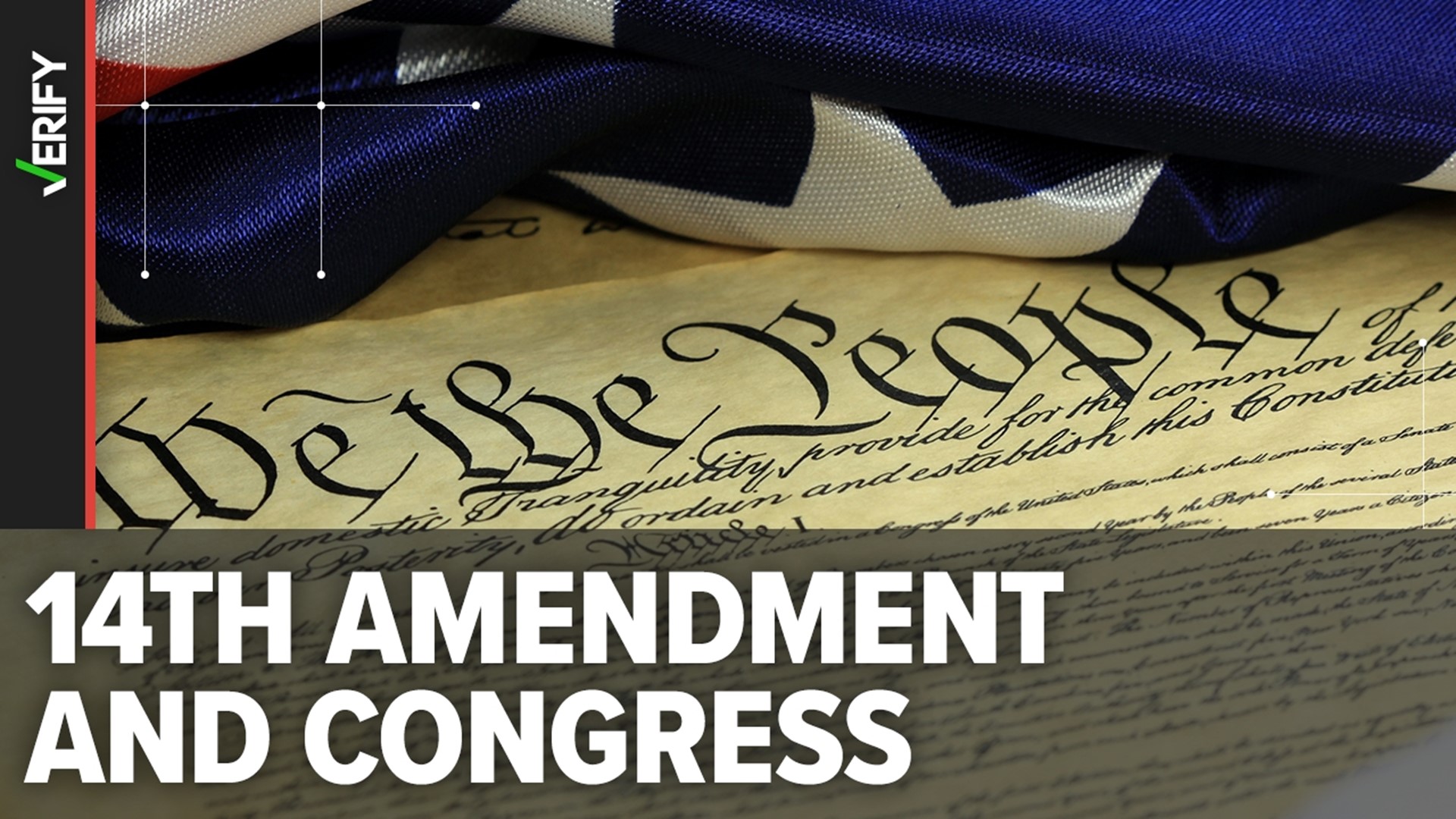Former President Donald Trump’s actions on Jan. 6, 2021 have resulted in numerous criminal charges, alleging he attempted to stop the peaceful transfer of power following his election loss to President Joe Biden.
The same actions have caused some people to raise questions about whether Trump might be ineligible to hold future elected office, due to a clause in the 14th Amendment. That clause disqualifies those who have engaged in insurrection against the United States.
As VERIFY previously reported, it remains an open question whether the law applies to a former president. But VERIFY reader Ed wanted to know whether the clause in the 14th Amendment applies to members of Congress.
THE QUESTION
Does Section 3 of the 14th Amendment apply to members of Congress?
THE SOURCES
THE ANSWER
Yes, Section 3 of the 14th Amendment applies to members of Congress and prohibits those who “have engaged in insurrection or rebellion” from holding office.
But the section does not say how that prohibition should be enforced, and it rarely has been.
WHAT WE FOUND
Section 3 of the 14th Amendment states “No person shall be a Senator or Representative in Congress, or elector of President and Vice-President, or hold any office, civil or military, under the United States, or under any State, who, having previously taken an oath, as a member of Congress, or as an officer of the United States, or as a member of any State legislature, or as an executive or judicial officer of any State, to support the Constitution of the United States, shall have engaged in insurrection or rebellion against the same, or given aid or comfort to the enemies thereof.”
The section is sometimes called the “disqualification clause” or the “insurrection clause” because it disqualifies members who engage in insurrection from holding office.
The provision was created after the Civil War as a way to remove former Confederate rebels from office in the newly reunited government. Since then, it’s been used only a handful of times.
The law does not spell out how disqualifications should be enforced, or who should enforce them. As a result, attempts have been made to disqualify people through numerous different avenues, with mixed results. In theory, someone could be disqualified as part of a criminal sentencing, as the result of a civil action, as part of an administrative hearing (such as one run by a state elections board), or via an act of Congress.
Only one person has been barred from office under the 14th Amendment in the last 100 years. Couy Griffin was a county commissioner in New Mexico who participated in the Jan. 6 riots. A group of lawyers sued on behalf of voters, calling for his disqualification. A state judge ruled Griffin was ineligible to hold office under Section 3.
No members of Congress have been disqualified under Section 3 as a result of their alleged participation in the January 6th riots. There have been attempts to do so, but they failed in court.
Since Section 3 is specific to people who violate a Constitutional oath, it does not apply to private citizens. That means this law would not apply to someone who participated in the January 6th riots and was later elected to Congress.

